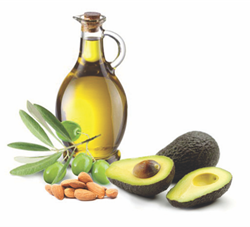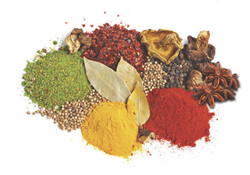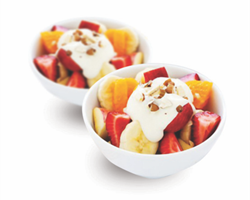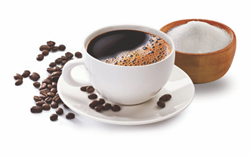For many people, eating the right foods, while avoiding the wrong ones, can help reduce the symptoms of psoriasis. While dietary charges will not cure psoriasis, the long term health effects will be beneficial.
Here are 6 tips to include in your diet:
1. Healthy eating makes sense

Although the influence of eating habits on psoriasis may be controversial, nobody can deny the benefits of a healthy diet. There are many healthy eating plans, e.g. the Mediterranean diet, which is rich in olive oil, beans, nuts, grains and fish. Another is the low carbohydrate high fat (LCHF) diet, which advocates a reduction in carbohydrates and a moderate intake of protein and healthy fats, such as nuts and butter. Importantly, listen to your body. If you eat or drink something that causes your psoriasis to flare up, you may need to eliminate it from your diet. If in doubt, speak to your pharmacist, doctor or dietitian.
4. Eat more vegetable oils

Certain oils, such as olive, nut, avocado, flax seed, evening primrose, borage and black current seed oil, reduce psoriasis symptoms through their anti-inflammatory effects. The may also reduce the risk of heart disease and stroke. These oils can be used for cooking, sautéing, or in salads.
2. Eat a lot of fish

Fish rich in omega-3 fats, e.g. salmon, sardines, herring, mackerel and anchovies, help reduce the symptoms of psoriasis. The omega-3 fats are also good for the heart and blood vessels and reduce the risk of dying from heart disease.
5. Add spice to your life

Adding herbs and spices to your diet can help reduce your salt intake, which will lower your blood pressure and reduce your risk of heart attack and stroke. Tumeric has been shown to combat inflammation and garlic has a cholesterol-lowering effect.
3. Take a probiotic supplement

Probiotic ('the good bacteria in our intestines') have been shown to reduce the symptoms of psoriasis, as well as lower the risk of stroke and heart attack. Probiotics can be found in yogurt or in certain supplements.
6. Avoid foods that trigger inflammation

Foods that trigger inflammation should be consumed in moderation. These include dairy, caffeine, alcohol, corn, gluten and sugar. Excessive sugar intake contributes to the development of type 2 diabetes and heart disease.

